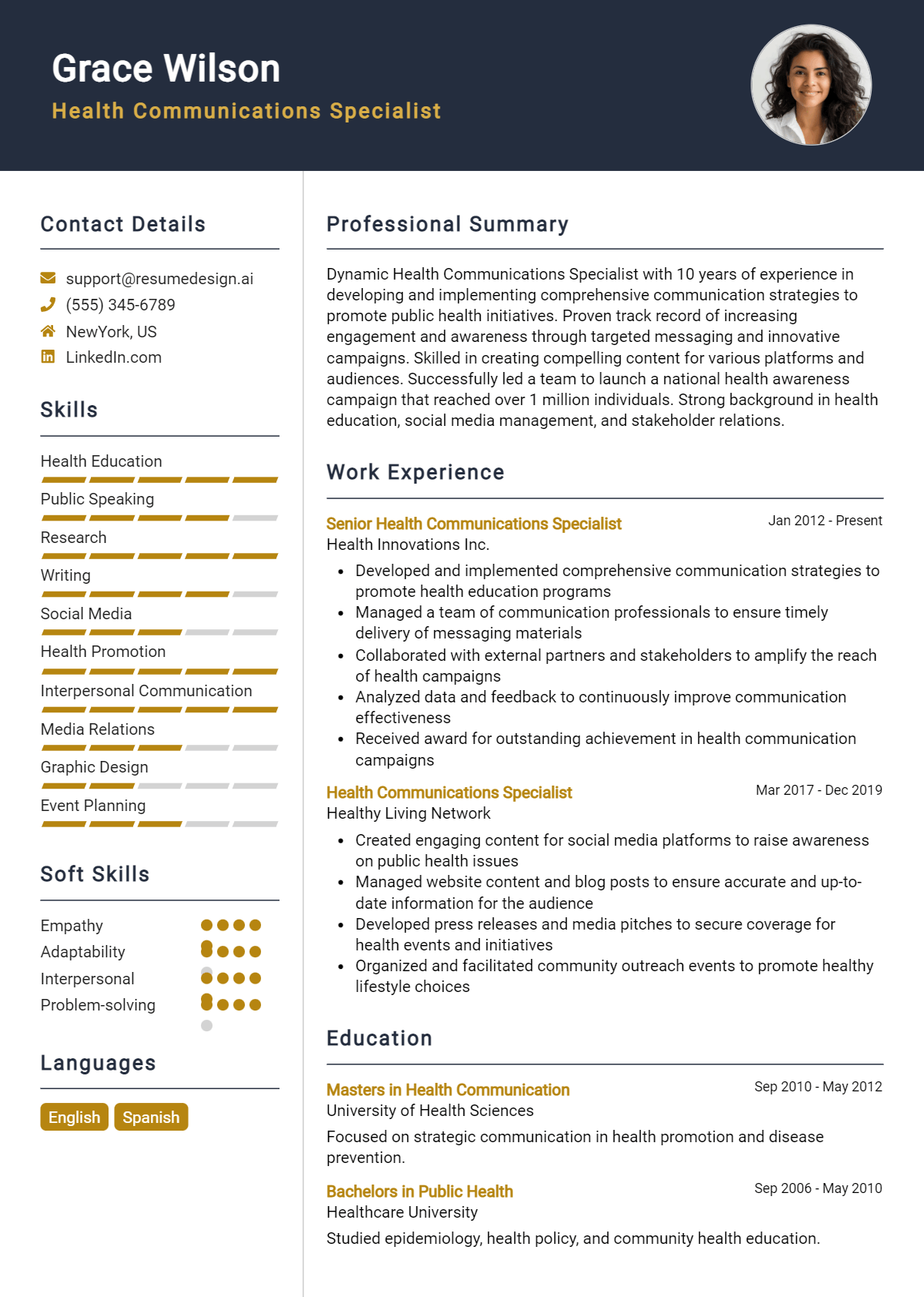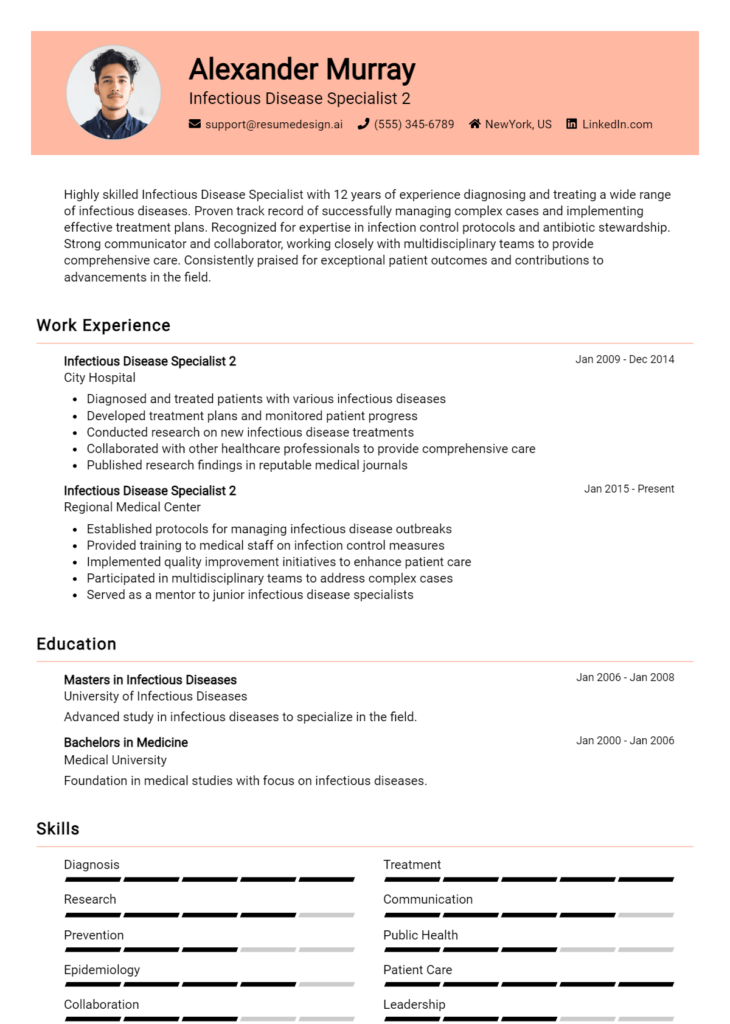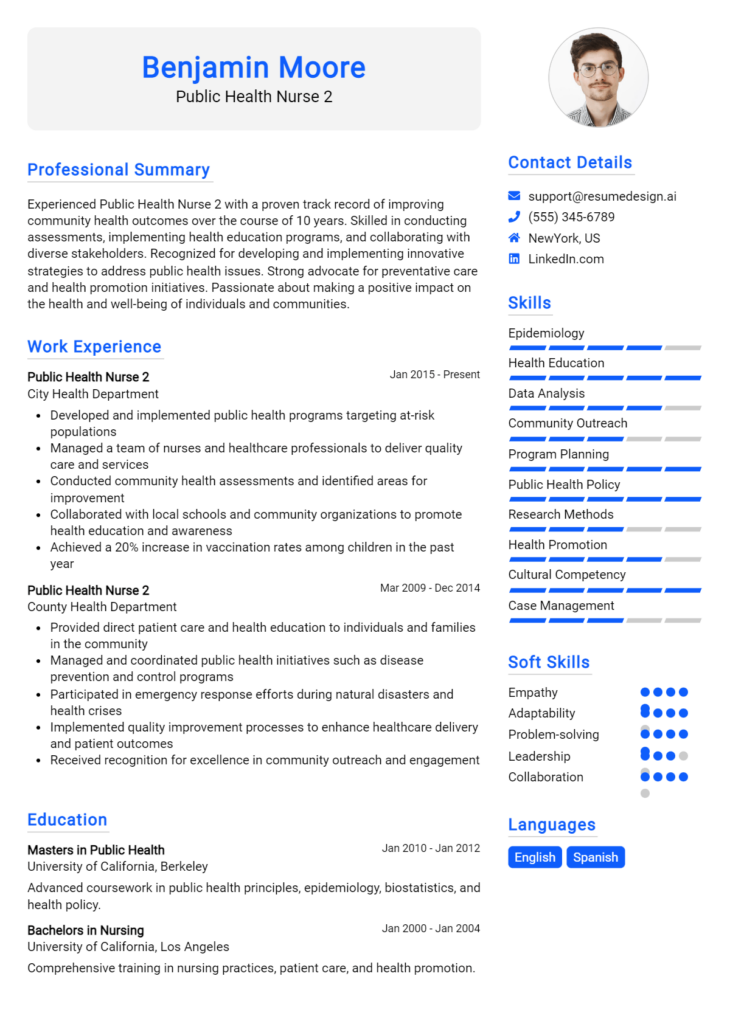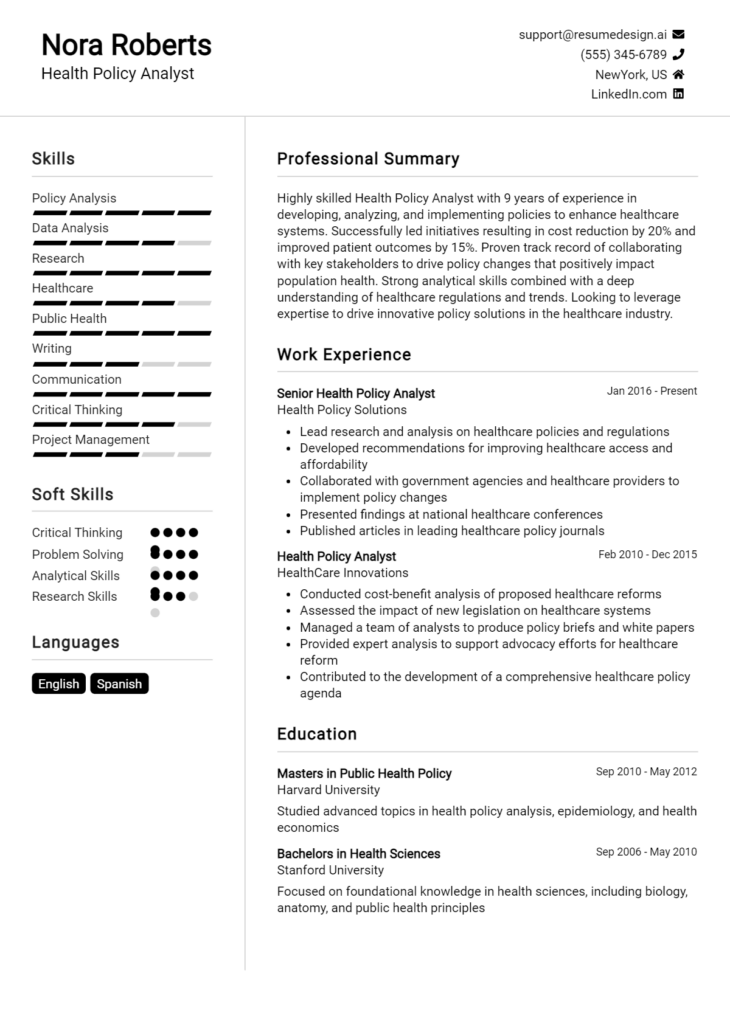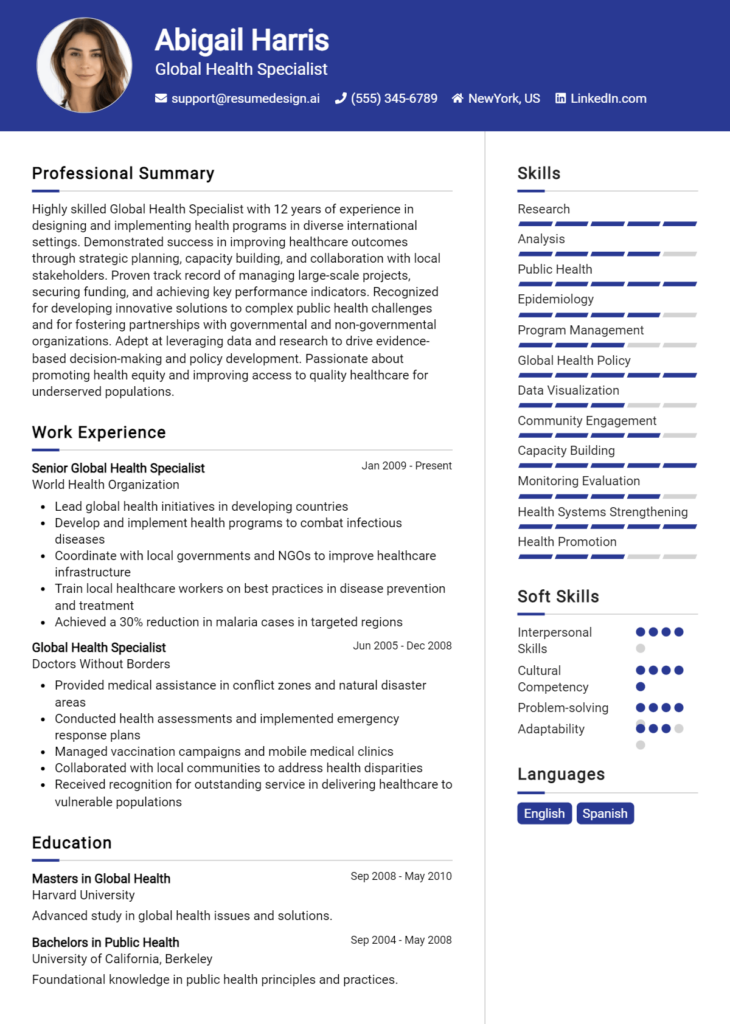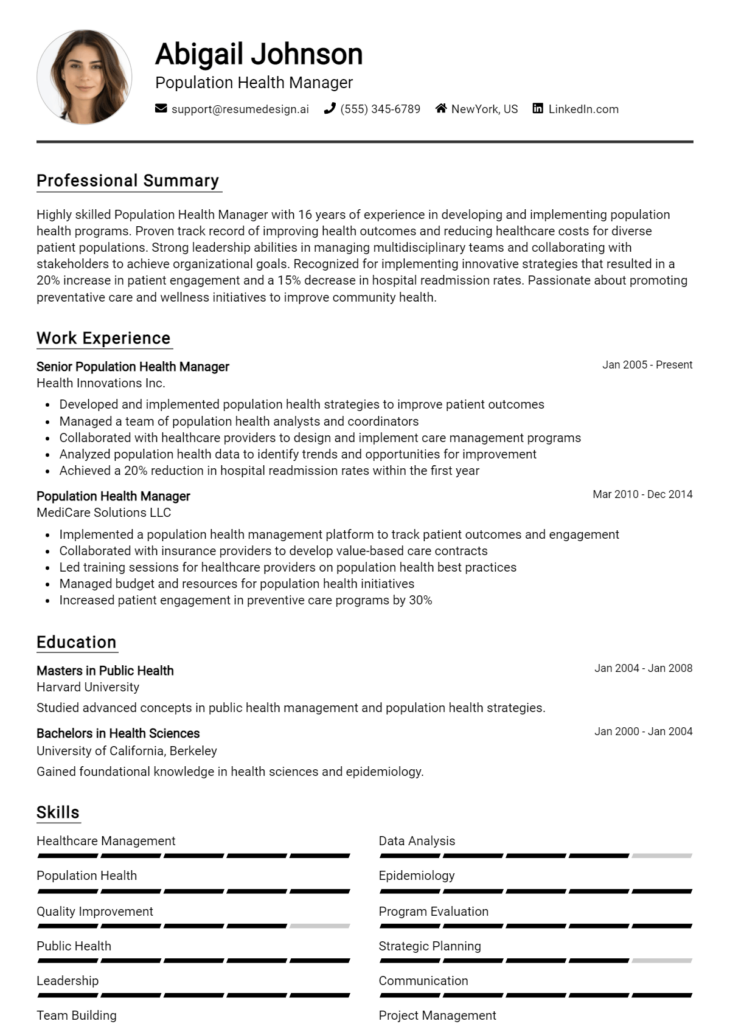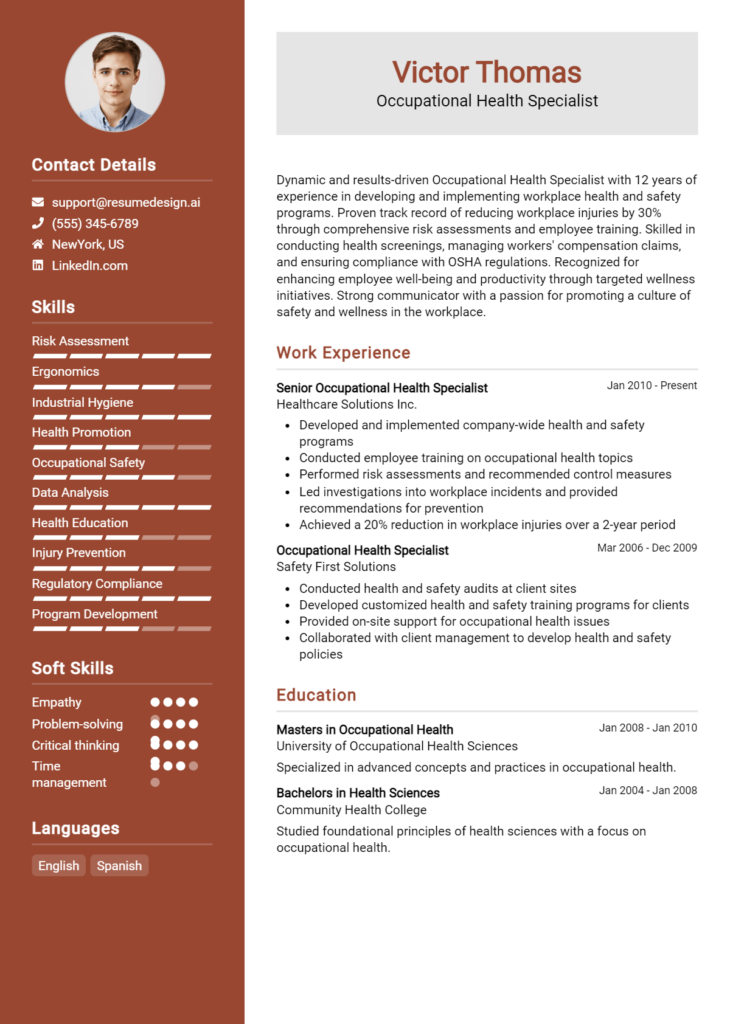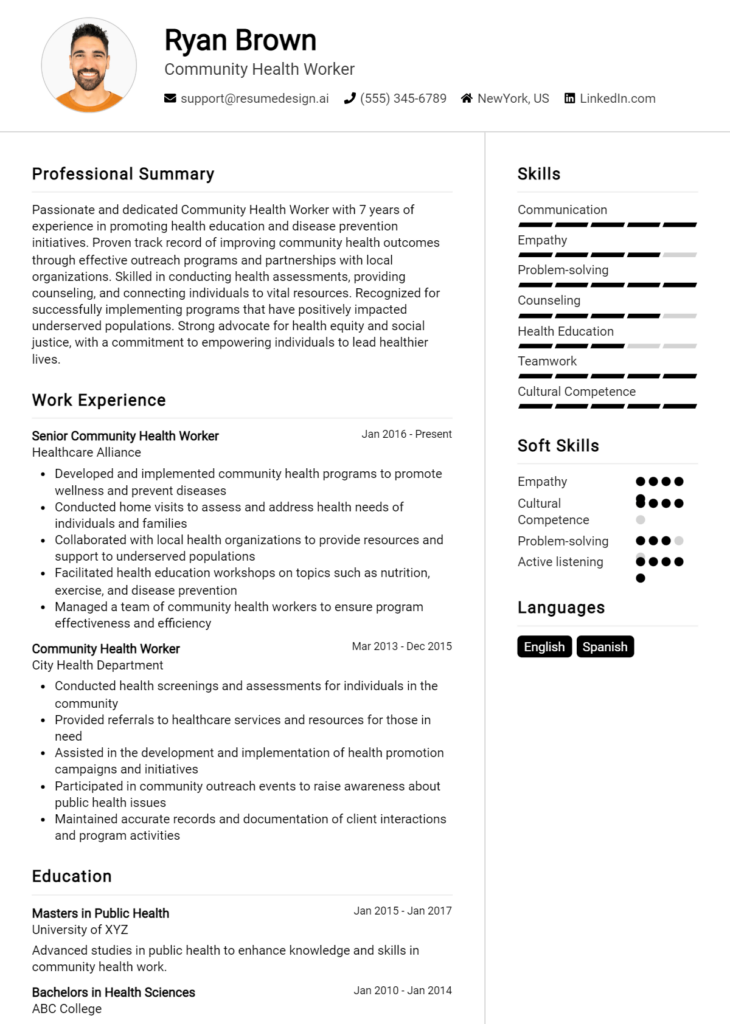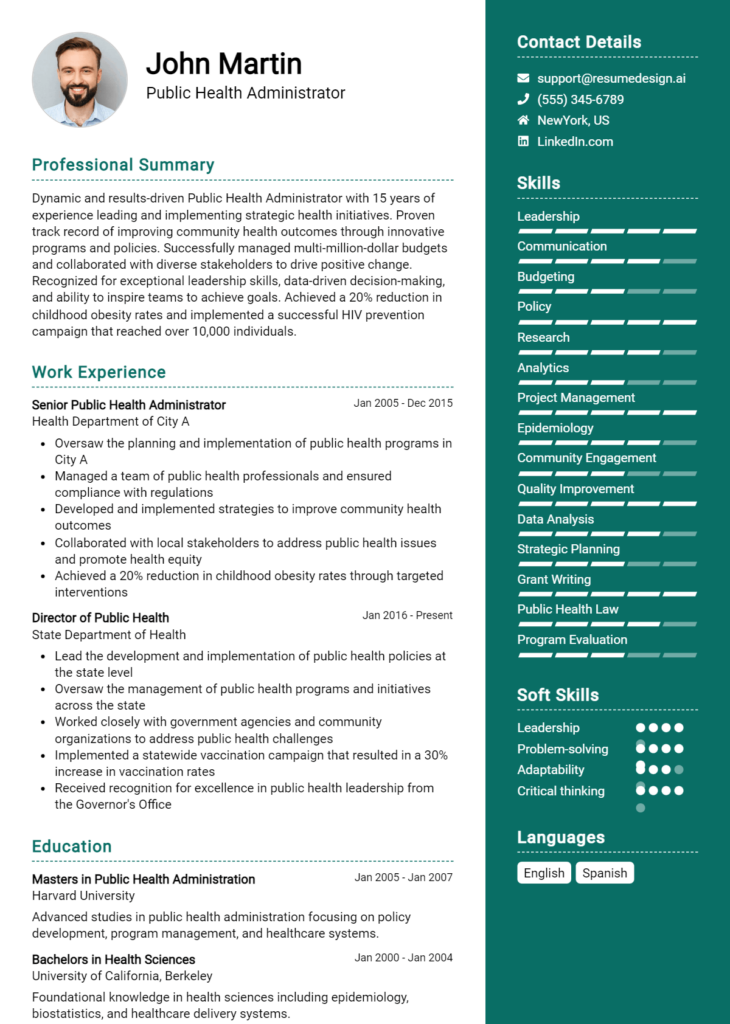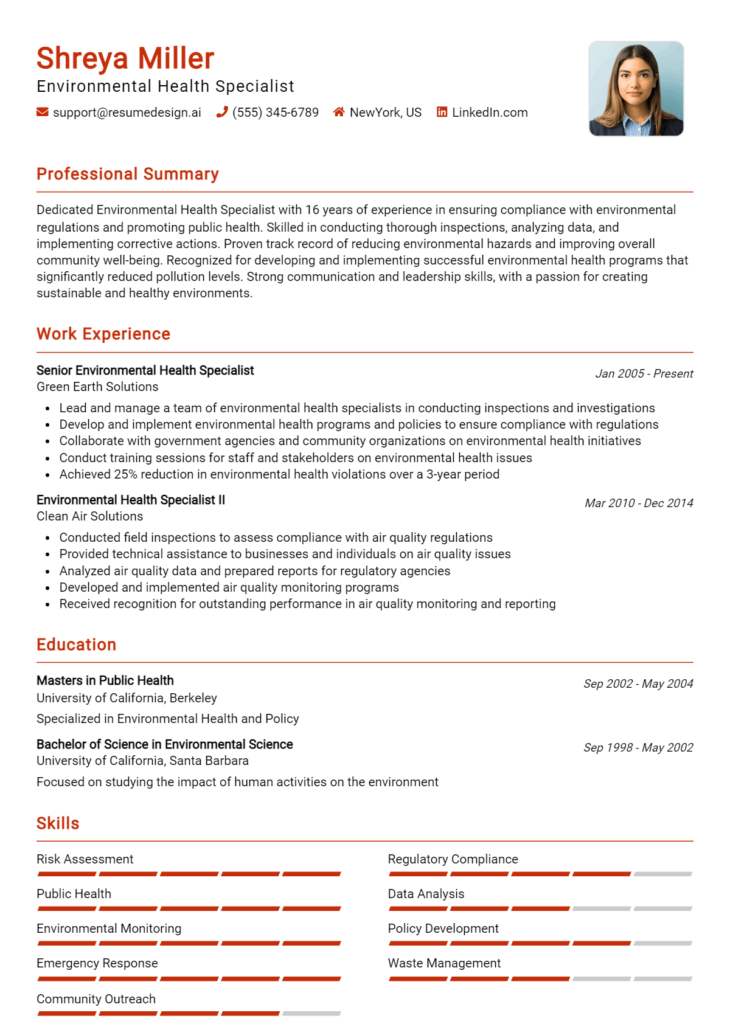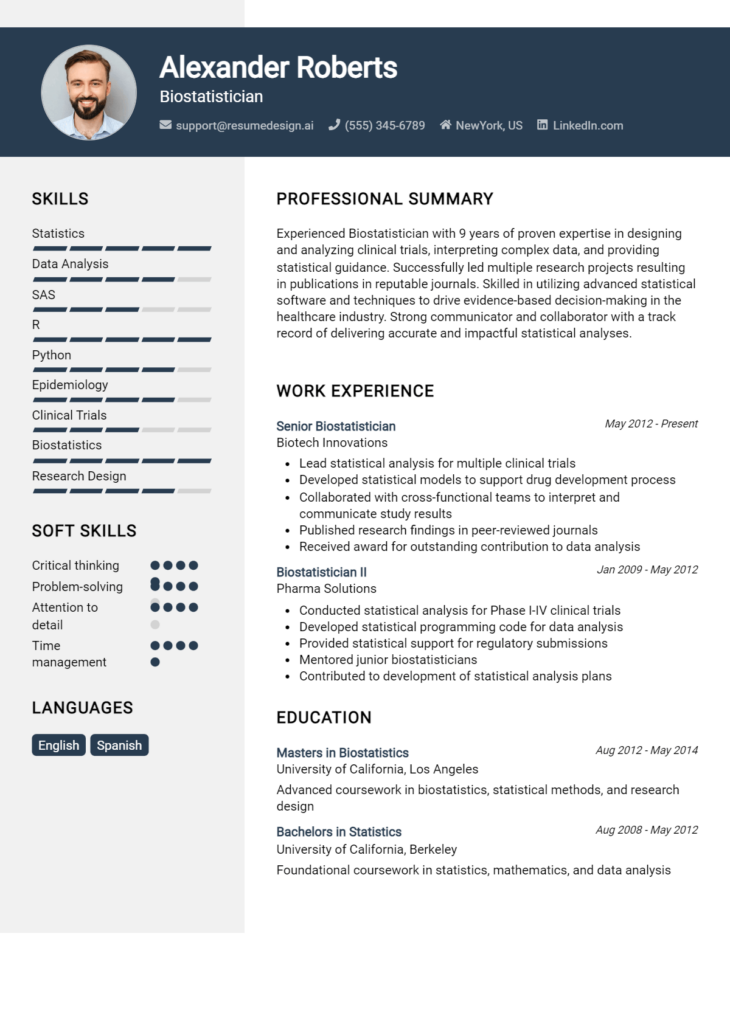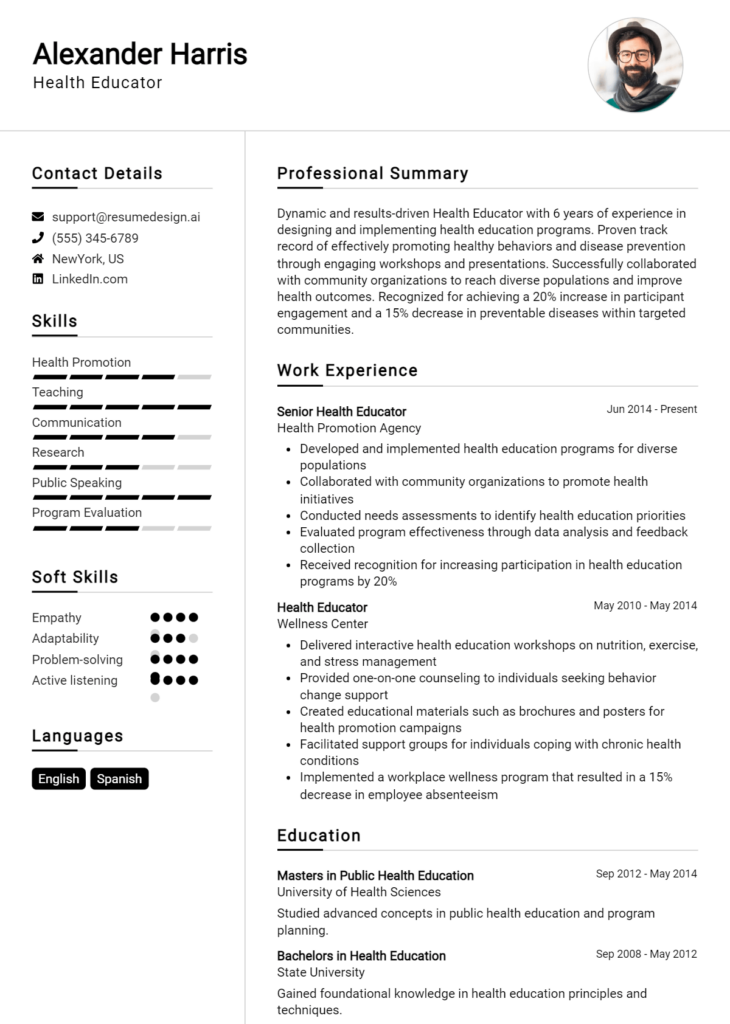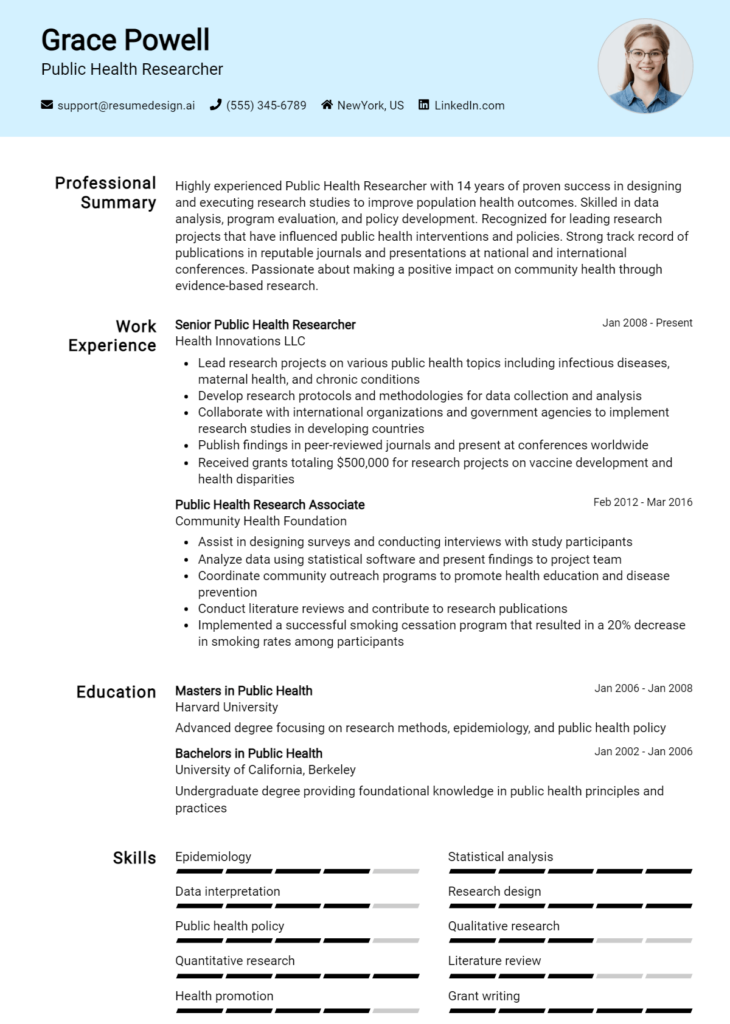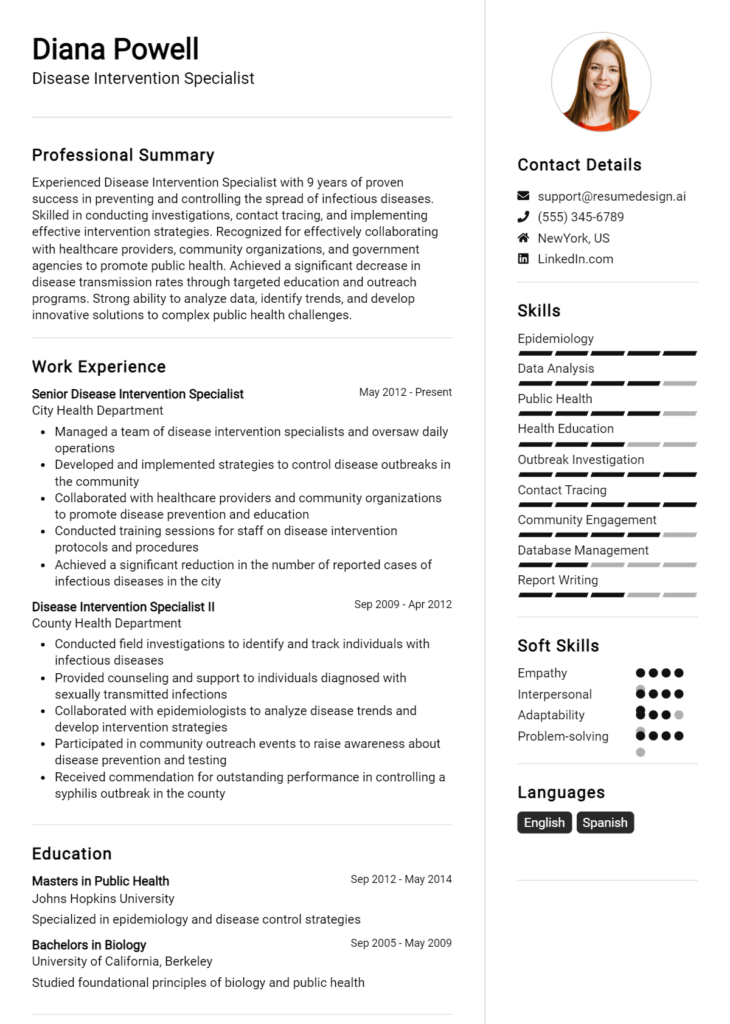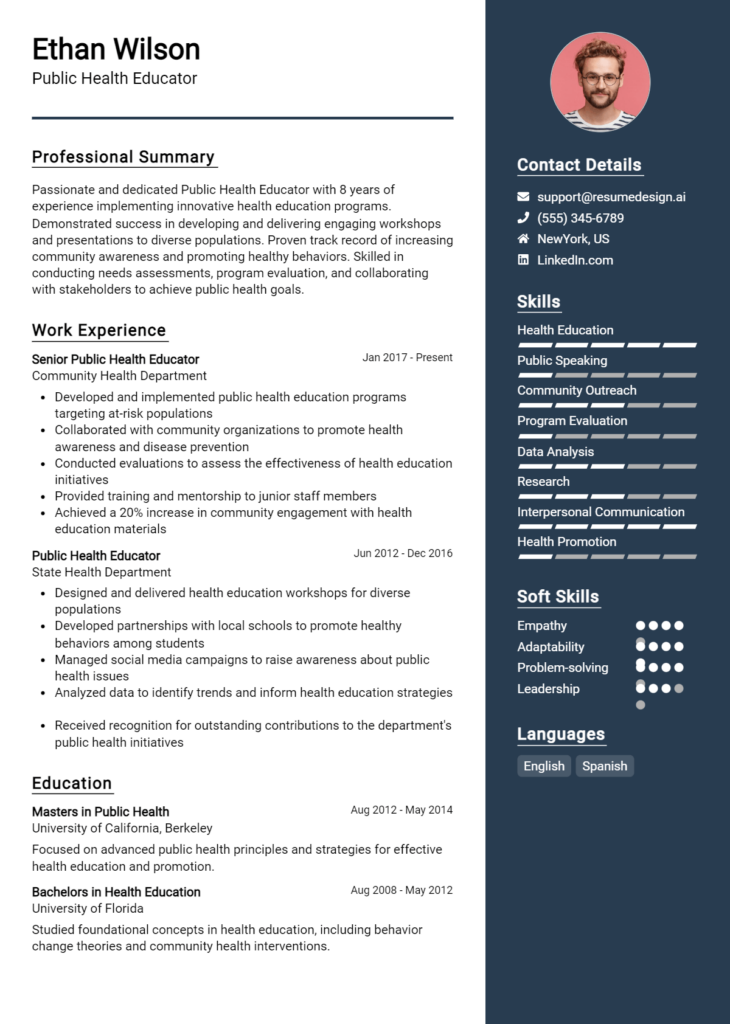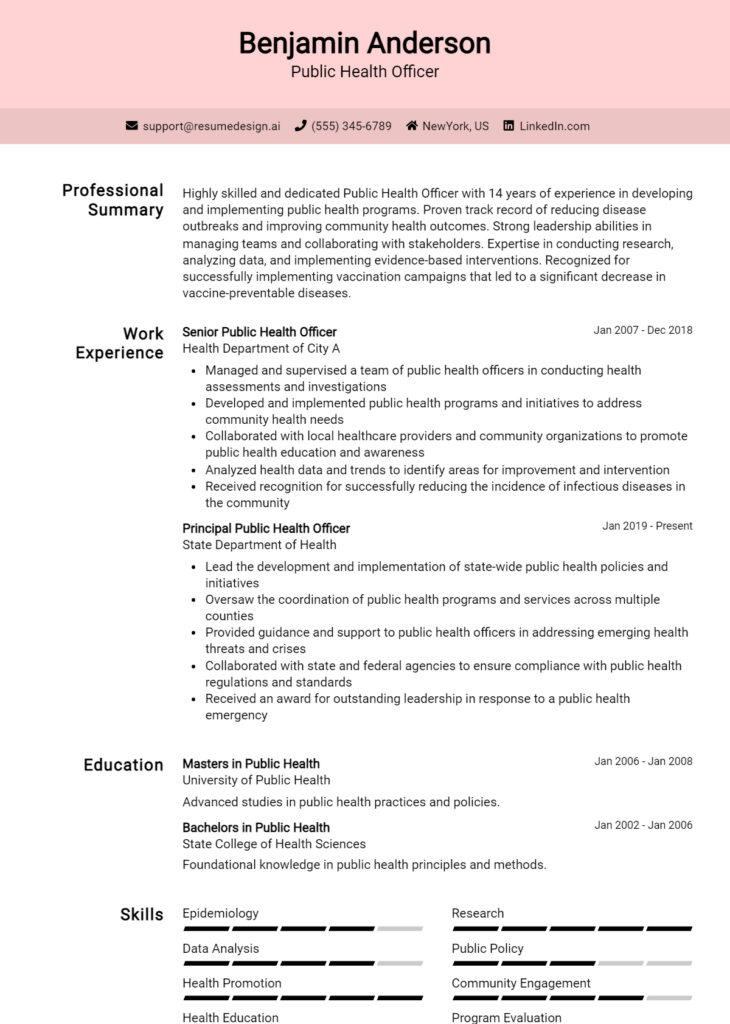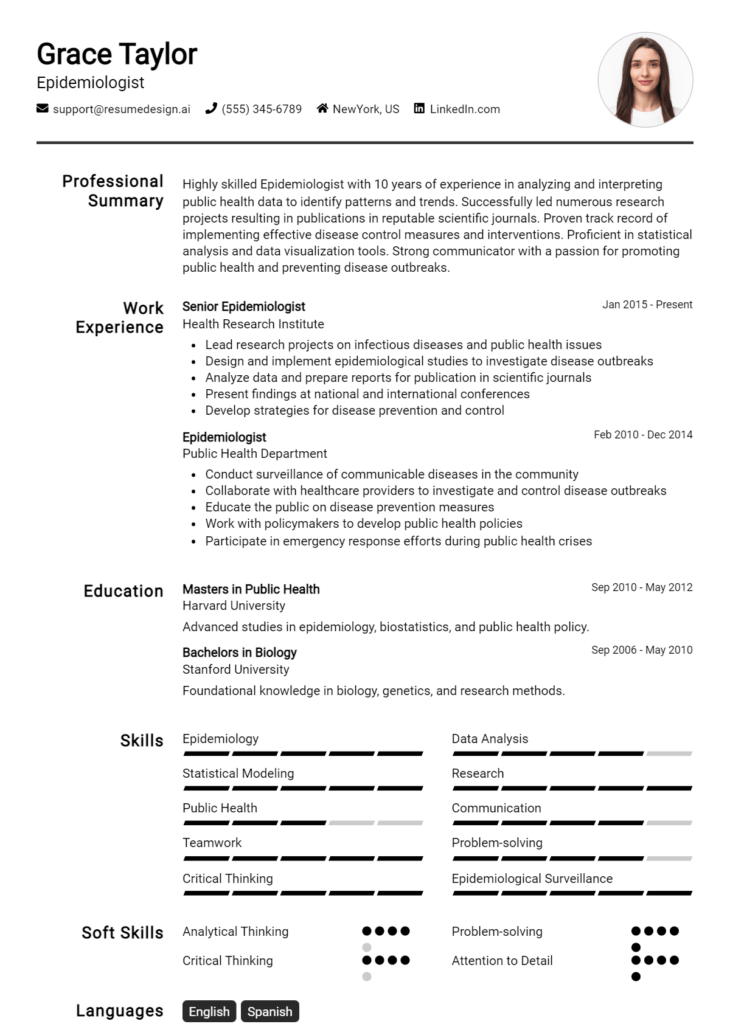Health Communications Specialist Core Responsibilities
A Health Communications Specialist plays a vital role in bridging various departments within healthcare organizations by developing and implementing effective communication strategies. Key responsibilities include crafting health messages, managing public relations campaigns, and analyzing communication data to enhance outreach efforts. Essential skills encompass technical proficiency in communication tools, operational expertise in project management, and strong problem-solving abilities. These skills are crucial for achieving organizational goals and can be effectively showcased in a well-structured resume.
Common Responsibilities Listed on Health Communications Specialist Resume
- Develop and implement health communication strategies and campaigns.
- Create and edit health-related content for various platforms.
- Analyze and interpret data to assess communication effectiveness.
- Coordinate with healthcare professionals and departments to ensure message consistency.
- Manage social media accounts and engage with the community.
- Organize public outreach events and health education initiatives.
- Monitor public perception and respond to inquiries effectively.
- Collaborate with researchers to disseminate findings to the public.
- Prepare press releases and media kits for health initiatives.
- Train staff on communication best practices and techniques.
- Evaluate and report on campaign performance and audience engagement.
High-Level Resume Tips for Health Communications Specialist Professionals
In the competitive field of health communications, a well-crafted resume can be the key to unlocking new professional opportunities. As the first impression candidates make on potential employers, it is crucial that your resume not only highlights your skills and achievements but also conveys your passion for health communication. A strong resume should effectively showcase your ability to convey complex health information in an accessible manner, demonstrate your experience in public health campaigns, and reflect your understanding of the healthcare landscape. This guide will provide practical and actionable resume tips tailored specifically for Health Communications Specialist professionals, empowering you to make a lasting impression.
Top Resume Tips for Health Communications Specialist Professionals
- Tailor your resume for each job application by aligning your skills and experiences with the specific requirements outlined in the job description.
- Highlight relevant experience in health communications, including internships, volunteer work, and previous positions in public health or communications.
- Quantify your achievements by using metrics and specific outcomes to demonstrate the impact of your work, such as increased engagement or improved health literacy rates.
- Incorporate industry-specific keywords and phrases to pass through Applicant Tracking Systems (ATS) and catch the attention of hiring managers.
- Showcase your proficiency in various communication channels, such as social media, press releases, and community outreach initiatives.
- Include any certifications or relevant training in health communication, public relations, or public health to enhance your credibility.
- Emphasize your ability to work collaboratively with multidisciplinary teams, reflecting the nature of health communication strategies.
- Utilize a clean and professional format that enhances readability and effectively highlights your key strengths and experiences.
- Consider adding a brief summary or objective statement at the top of your resume that encapsulates your career goals and what you bring to the role.
By implementing these tips, you can significantly increase your chances of landing a job in the health communications field. A well-structured and targeted resume will not only showcase your qualifications but also demonstrate your commitment to improving public health through effective communication strategies. Take the time to refine your resume, and you'll be one step closer to securing your desired position.
Why Resume Headlines & Titles are Important for Health Communications Specialist
In the competitive field of health communications, a well-crafted resume headline or title is essential for standing out to hiring managers. This brief yet powerful statement serves as the first impression of a candidate's qualifications, encapsulating their key strengths and relevance to the position in just a few words. A strong headline not only grabs attention but also sets the tone for the entire resume, making it crucial for job seekers to create a concise and impactful title that aligns with the specific role they are applying for.
Best Practices for Crafting Resume Headlines for Health Communications Specialist
- Keep it concise: Aim for a headline that is no longer than a single phrase or sentence.
- Be role-specific: Tailor your headline to reflect the specific position you are targeting.
- Highlight key skills: Incorporate important skills or certifications relevant to health communications.
- Use strong action words: Choose dynamic verbs that convey your expertise and impact.
- Include measurable achievements: If possible, use numbers or metrics to quantify your accomplishments.
- Avoid jargon: Steer clear of overly technical language that may not resonate with all hiring managers.
- Make it relevant: Ensure your headline reflects the job description and requirements.
- Stay professional: Use a formal tone that represents your professionalism in the field.
Example Resume Headlines for Health Communications Specialist
Strong Resume Headlines
"Results-Driven Health Communications Specialist with 5+ Years of Experience in Public Health Campaigns"
“Skilled Health Communications Expert Specializing in Digital Outreach and Community Engagement”
“Innovative Health Communication Strategist: Proven Track Record in Enhancing Patient Education Programs”
Weak Resume Headlines
“Just Another Job Seeker”
“Experienced Professional Seeking Opportunities”
The strong headlines are effective because they are specific, action-oriented, and immediately convey the candidate's relevant experience and expertise in health communications. They highlight unique skills and achievements, making the candidate memorable to hiring managers. In contrast, the weak examples lack specificity and fail to provide any insight into the candidate's qualifications or the value they bring to the role, ultimately making them forgettable in a sea of applicants.
Writing an Exceptional Health Communications Specialist Resume Summary
A resume summary is a crucial element for a Health Communications Specialist, serving as the first impression for hiring managers. In a competitive job market, a strong summary quickly captures attention by highlighting key skills, relevant experience, and notable accomplishments that align with the job role. It should be concise, impactful, and tailored to the specific position the candidate is applying for, effectively showcasing their unique qualifications and setting the tone for the rest of the resume.
Best Practices for Writing a Health Communications Specialist Resume Summary
- Quantify achievements to demonstrate impact, using numbers or percentages where applicable.
- Focus on relevant skills that match the job description, such as communication, research, or public health expertise.
- Tailor the summary to the specific job by incorporating keywords from the job description.
- Keep it concise, ideally between 3-5 sentences, to maintain the reader's attention.
- Highlight specific accomplishments, such as successful campaigns or initiatives led.
- Use strong action verbs to convey a sense of proactivity and effectiveness.
- Showcase both hard and soft skills, emphasizing the candidate’s versatility.
- Avoid vague statements; ensure every word adds value and clarity to the summary.
Example Health Communications Specialist Resume Summaries
Strong Resume Summaries
Results-driven Health Communications Specialist with over 5 years of experience in developing and implementing successful public health campaigns, resulting in a 30% increase in community engagement. Skilled in crafting clear and impactful messaging tailored to diverse audiences, with expertise in social media strategy and community outreach.
Dynamic communications professional with a proven track record of enhancing health literacy through targeted messaging and educational programs. Successfully led a statewide initiative that improved vaccination rates by 25% in underserved populations through innovative outreach strategies and collaborations.
Experienced Health Communications Specialist adept at leveraging data analytics to inform strategic communication initiatives. Developed a health awareness campaign that achieved a 40% increase in local clinic visits, demonstrating strong abilities in project management and stakeholder engagement.
Weak Resume Summaries
Health communications professional seeking a position to utilize my skills and experience. I have worked in various roles and can communicate effectively with different audiences.
I am a dedicated individual with experience in public health communications. I aim to help organizations improve their outreach and messaging strategies.
The strong resume summaries stand out because they provide quantifiable results, specific skills, and direct relevance to the role, making it clear how the candidate can contribute to the organization. In contrast, the weak summaries are vague, lack measurable outcomes, and do not effectively highlight the candidate's qualifications or the impact of their past work, making them less appealing to hiring managers.
Work Experience Section for Health Communications Specialist Resume
The work experience section of a Health Communications Specialist resume is vital as it serves as a primary showcase for a candidate's technical skills, leadership abilities, and capacity to produce high-quality deliverables. This section not only highlights specific roles and responsibilities but also emphasizes quantifiable achievements that demonstrate the candidate's impact in previous positions. By aligning their experience with industry standards, candidates can effectively illustrate their readiness to tackle the challenges of health communications, making it crucial to communicate their expertise and results clearly.
Best Practices for Health Communications Specialist Work Experience
- Use action verbs to convey your contributions effectively.
- Quantify achievements with specific metrics (e.g., increased engagement by 30%).
- Highlight relevant technical skills and tools used in your role.
- Demonstrate collaboration by mentioning team projects and outcomes.
- Focus on results that align with health communication goals and objectives.
- Tailor your experience to match the job description and industry standards.
- Include diverse experiences that showcase adaptability in various health communication contexts.
- Maintain a clear and concise format for easy readability.
Example Work Experiences for Health Communications Specialist
Strong Experiences
- Led a cross-functional team to develop and implement a public health campaign that achieved a 40% increase in vaccination rates within six months.
- Designed and executed a health communication strategy that resulted in a 25% rise in community awareness, as measured by follow-up surveys.
- Utilized data visualization tools to present complex health data, improving stakeholder understanding and engagement by 50% during presentations.
- Collaborated with healthcare professionals to create educational materials that enhanced patient comprehension, evidenced by a 30% reduction in follow-up questions.
Weak Experiences
- Worked on health projects and assisted the team.
- Helped create health communication materials.
- Participated in meetings regarding health initiatives.
- Contributed to some campaigns with varying levels of success.
The examples listed above are considered strong because they provide specific, quantifiable outcomes that demonstrate leadership and tangible results in health communications. In contrast, the weak experiences lack detail and metrics, failing to convey the candidate's impact or specialized skills, which diminishes their effectiveness in showcasing the candidate’s qualifications for the role.
Education and Certifications Section for Health Communications Specialist Resume
The education and certifications section of a Health Communications Specialist resume is crucial as it showcases the candidate's academic qualifications, relevant certifications, and commitment to ongoing professional development. This section not only highlights the formal education that has equipped the candidate with essential knowledge and skills but also emphasizes industry-relevant certifications that validate their expertise. By providing details on relevant coursework and specialized training, candidates can significantly enhance their credibility and demonstrate alignment with the specific requirements of the job role, making a compelling case to potential employers.
Best Practices for Health Communications Specialist Education and Certifications
- Prioritize relevant degrees, such as a Bachelor's or Master's in Public Health, Communication, or a related field.
- Include industry-recognized certifications, such as Certified Health Education Specialist (CHES) or Certified Public Health (CPH).
- Detail relevant coursework that supports your qualifications, such as health behavior, communication strategies, and public health campaigns.
- Highlight any specialized training programs or workshops that are pertinent to health communication.
- Keep the information concise and focused on qualifications that align with the job description.
- Use clear and professional formatting to enhance readability and presentation.
- Regularly update your education and certifications to reflect new qualifications and achievements.
- Consider including honors or awards received during your academic career that demonstrate excellence in your field.
Example Education and Certifications for Health Communications Specialist
Strong Examples
- Bachelor of Science in Public Health, University of XYZ, 2020
- Master of Arts in Health Communication, University of ABC, 2022
- Certified Health Education Specialist (CHES), National Commission for Health Education Credentialing, 2021
- Coursework: Advanced Health Communication Strategies, Public Health Policy, and Program Evaluation Methods
Weak Examples
- Bachelor of Arts in English Literature, University of DEF, 2018
- Certification in Basic First Aid, 2019
- Coursework: Introduction to Sociology, Art History, and Creative Writing
- Online Course in Social Media Marketing, 2020
The strong examples provided are considered effective as they directly relate to the core competencies required for a Health Communications Specialist, showcasing relevant degrees and certifications that enhance the candidate's qualifications in the field. In contrast, the weak examples highlight qualifications that lack relevance to health communications, such as degrees and coursework unrelated to public health or communication, which do not support the candidate's alignment with the job role.
Top Skills & Keywords for Health Communications Specialist Resume
In the competitive field of health communications, a well-crafted resume is essential to showcase your expertise and stand out to potential employers. The skills you highlight can make a significant difference in demonstrating your qualifications and suitability for the role of a Health Communications Specialist. By effectively articulating both your hard and soft skills, you provide a comprehensive view of your capabilities, which is crucial in a field that requires both technical knowledge and interpersonal finesse. Including relevant skills allows you to illustrate your proficiency in health communication strategies, while also showcasing your ability to engage with diverse audiences and stakeholders.
Top Hard & Soft Skills for Health Communications Specialist
Soft Skills
- Excellent verbal and written communication
- Strong interpersonal skills
- Critical thinking and problem-solving
- Adaptability and flexibility
- Team collaboration and leadership
- Cultural competence
- Empathy and active listening
- Time management and organization
- Creativity and innovation
- Conflict resolution
Hard Skills
- Proficiency in health communication theory
- Knowledge of public health principles
- Experience with social media and digital marketing
- Data analysis and interpretation
- Familiarity with health literacy concepts
- Ability to create and manage communication campaigns
- Understanding of media relations
- Skill in using graphic design tools (e.g., Adobe Creative Suite)
- Experience in crisis communication
- Proficient in using content management systems (CMS)
Highlighting these essential soft and hard skills in your resume can significantly enhance your chances of securing a position as a Health Communications Specialist, as they reflect both your technical abilities and your capacity to connect with various audiences. Additionally, showcasing your relevant work experience can further emphasize your qualifications and readiness for the role.
Stand Out with a Winning Health Communications Specialist Cover Letter
As a dedicated professional with a strong background in health communications, I am excited to apply for the Health Communications Specialist position at [Company Name]. With a Master's degree in Public Health and over five years of experience in developing and implementing strategic communication plans, I am confident in my ability to contribute to your team. My passion for promoting health education and improving public awareness aligns perfectly with your organization's mission, and I am eager to bring my skills to your esteemed team.
In my previous role at [Previous Company Name], I successfully led a campaign that increased community engagement by 40% through targeted messaging and innovative outreach strategies. I collaborated with healthcare professionals, community leaders, and stakeholders to create informative content that addressed pressing health issues. My ability to convey complex health information in a clear and accessible manner has not only enhanced public understanding but also encouraged healthier lifestyle choices among diverse populations. I am skilled in using various communication tools, including social media, newsletters, and community workshops, to reach a wide audience effectively.
I am particularly impressed by [Company Name]'s commitment to [specific initiative or value], and I believe my background in health literacy and community engagement would complement your efforts. I have a proven track record of utilizing data-driven approaches to assess campaign effectiveness, allowing for continuous improvement and adaptation of strategies to meet the evolving needs of the community. My proficiency in researching health trends and analyzing audience demographics ensures that communication efforts are not only impactful but also tailored to resonate with specific groups.
I am excited about the opportunity to bring my expertise in health communications to [Company Name] and contribute to your mission of improving public health outcomes. I look forward to the possibility of discussing how my skills and experiences align with your needs. Thank you for considering my application; I hope to connect soon.
Common Mistakes to Avoid in a Health Communications Specialist Resume
When crafting a resume for the role of a Health Communications Specialist, it's crucial to present your skills and experiences clearly and effectively. However, many candidates make common mistakes that can undermine their chances of landing an interview. By avoiding these pitfalls, you can enhance the impact of your resume and better showcase your qualifications in the competitive field of health communications.
Vague Job Descriptions: Using generic phrases instead of specific achievements can make it difficult for employers to gauge your actual contributions. Be precise about your responsibilities and the outcomes of your efforts.
Ignoring Keywords: Failing to incorporate relevant keywords from the job description can result in your resume being overlooked, especially if automated screening tools are used. Tailor your resume to include industry-specific terms.
Too Much Jargon: While expertise in health communications is important, overloading your resume with technical jargon can alienate hiring managers. Strive for clarity and ensure your language is accessible.
Neglecting to Quantify Achievements: Not providing measurable results makes it hard for employers to understand the impact of your work. Quantify your achievements with statistics, such as increased engagement rates or successful campaign reach.
Unfocused Objective Statement: A vague or overly broad objective statement can dilute your resume's focus. Instead, craft a targeted summary that highlights your specific goals and how they align with the position.
Poor Formatting: A cluttered or inconsistent format can make your resume difficult to read. Use clear headings, bullet points, and a clean layout to enhance readability and professionalism.
Lack of Relevant Experience: Including unrelated work experiences can distract from your qualifications. Focus on roles and projects that directly relate to health communications to keep the attention on your relevant skills.
Typos and Grammatical Errors: Simple mistakes in spelling or grammar can create a negative impression and suggest a lack of attention to detail. Always proofread your resume or have someone else review it before submission.
Conclusion
As we’ve explored the essential responsibilities and skills of a Health Communications Specialist, it’s clear that this role plays a vital part in promoting public health initiatives, crafting effective communication strategies, and engaging with diverse audiences. A successful Health Communications Specialist must possess strong writing abilities, a deep understanding of health literacy, and the capacity to analyze and respond to community needs effectively.
To ensure you stand out in this competitive field, it's crucial to have a polished resume that highlights your relevant experience and skills. Take the time to review your Health Communications Specialist resume and make the necessary updates to reflect your expertise and accomplishments.
If you're looking for assistance in refining your resume, consider using our available resources. Explore our resume templates to find a design that suits your style, or use our resume builder for a more guided approach. Additionally, check out our resume examples for inspiration and our cover letter templates to help you create a compelling application package. Don’t wait—take action today and enhance your chances of landing your dream job in health communications!

